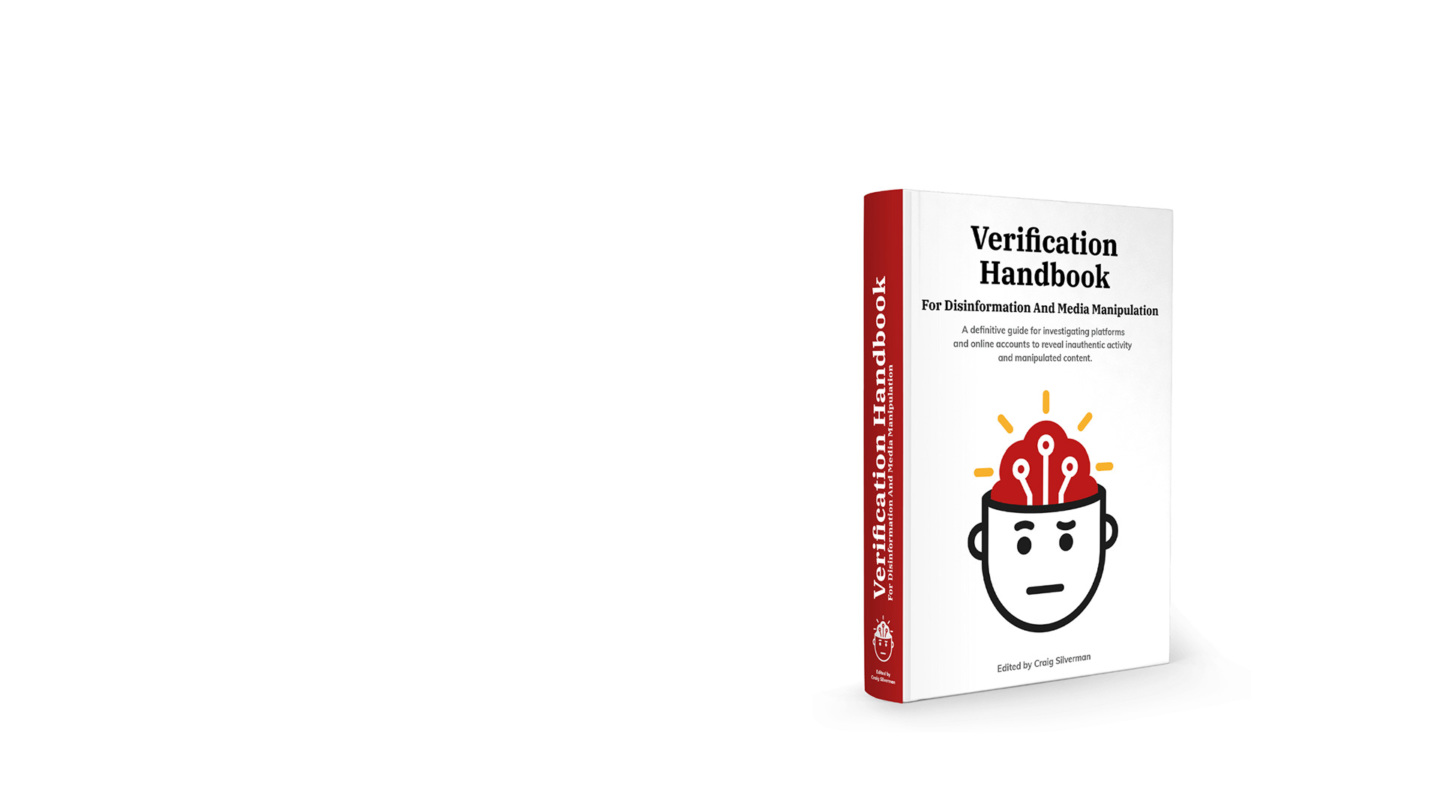
Classroom connection: Exploring the ‘Verification Handbook’
The European Journalism Centre, a journalism training and advocacy nonprofit in Maastricht, Netherlands, has released the third edition of its Verification Handbook, an online primer designed to help journalists investigate online content. The guide is edited by Craig Silverman, the media editor at BuzzFeed News and a digital fact-checking pioneer, and includes contributions from a range of distinguished journalists and misinformation researchers.
The book is divided into three parts: an introduction, which explains the stakes of digital verification work; a section on investigating individual accounts and pieces of content; and a section on analyzing platforms and influence operations.
Though it was created to help journalists avoid being exploited by “coordinated and well-funded campaigns to capture our attention, trick us into amplifying messages, and bend us to the will of states and other powerful forces,” the book is also broadly useful for anyone interested in honing digital verification skills — especially educators working with students.
Every article addresses a vital topic; several stand out for adoption in the classroom:
- “The Age of Information Disorder” by Claire Wardle, the head of strategic direction and research at First Draft. It includes three important elements for students: a taxonomy for categorizing different types of misinformation; an explanation of approaches to the thorny topic of determining the intent behind a piece of misinformation; and a graphic — the Trumpet of Amplification — that shows how bad actors “use coordination to move information through the ecosystem,” promoting falsehoods in closed groups and conspiracy communities until they trend on social media and gain the attention of professional media.
- Idea: In groups or individually, ask students to collect 10 recent examples of misinformation (by using fact-checking websites or this newsletter’s viral rumor rundown). Then have them trade those examples with another group or student and determine which of Wardle’s seven forms of information disorder best fits each example.
- “Spotting bots, cyborgs and inauthentic activity” by Charlotte Godart and Johanna Wild, two open-source investigators affiliated with the online investigations collective Bellingcat. It offers an approachable yet detailed look at automated and semi-automated accounts. This section also gives clear steps anyone can take to investigate suspicious accounts; explains common red flags for automated accounts; and links to several useful online tools, including three — Botometer, Bot Sentinel and accountanalysis — that analyze Twitter accounts for bot-like patterns.
- Idea: Review with students the common characteristics of automated accounts on Twitter, such as usernames that the platform automatically assigns, a lack of a profile picture, and unusual account activity. Have them work in teams to collect a number of accounts that they suspect are bots. Then have the teams trade their collections and use one of the free analysis tools linked above to evaluate the likelihood that the accounts are automated.
- “Investigating websites,” by Craig Silverman. It explains how to explore who is behind a website; how to uncover networks of shady sites; how to analyze web content (including webpages that have been deleted); how to use tools such as BuzzSumo and CrowdTangle to map the spread of specific links or domains across social media; and how to investigate domain registrations and IP addresses using tools such as DomainBigData.
- Idea: Ask students to read this article, then divide them into groups. Give each group a different tool mentioned in this piece; ask them to explore it, and then explain it, to their classmates.
NLP resource
Check Center, part of NLP’s Checkology® virtual classroom, includes tutorials and fact-checking missions for students. (Registration is required for teacher or parent access; NLP is currently waiving new student license fees for those affected by the COVID-19 pandemic. Teachers and parents engaged in distance learning or homeschooling as a result of school closures can apply here for access through June 30.)